Plastic recycling: No "credible path forward"

When it was announced that Coca-Cola would be a major sponsor of the COP27 climate summit in Egypt, climate campaigners and activists quickly accused the company of greenwashing.
"This is greenwashing from Coca-Cola, plain and simple, all whilst they fill the ocean with plastic pollution and emit huge volumes of carbon by using virgin oil in their production of plastic packaging," said Amy Slack, head of campaigns and policy for UK-based ocean activists, Surfers Against Sewage.
Coca-Cola produces around 120 billion oil-based plastic bottles annually, according to anti-plastics campaigners Break Free from Plastics. Around 99 percent of the bottles are produced with fossil fuels, which is worsening climate change and fueling big oil's expansion into plastics amid the clean energy transition, say Greenpeace.
Despite a promise by Coca-Cola to reduce its emissions by 25 percent by 2030, a large majority of its containers are not recycled.
Surfers Against Sewage said that of the packaging waste collected on clean-ups across the UK, one-fifth carries the Coca-Cola brand.
With so little recycled of the 400 million tons of plastic waste created annually, according to the World Economic Forum, Coca-Cola is the pinnacle of a much broader problem. In the US, for example, only around 5 percent of plastic waste is recycled, noted Greenpeace in a report released last week that calls out the "failed, toxic plastic recycling myth."
2025 commitment to 'reuse, recycle and compost' won't be met
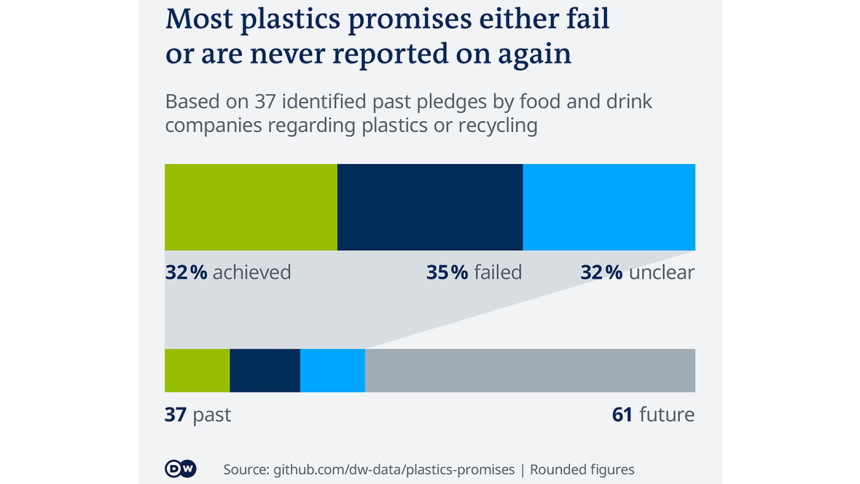
As plastic waste multiples, the companies that produce it have long claimed that their packaging will soon be largely recyclable or biodegradable.
In a statement released last month following the furor over its COP 27 sponsorship, Coca-Cola said it shares "the goal of eliminating waste from the ocean," and plans to "to collect and recycle a bottle or can for every one we sell" by 2030.
"Our support for COP27 is in line with our science-based target to reduce absolute carbon emissions 25 per cent by 2030, and our ambition for net-zero carbon emissions by 2050," the statement added.
But campaigners question the whole recycling premise.
"Corporations like Coca-Cola, PepsiCo, Nestlé, and Unilever have worked with industry front groups to promote plastic recycling as the solution to plastic waste for decades," said Lisa Ramsden, Greenpeace USA Senior Plastics Campaigner. "But the data is clear: practically speaking, most plastic is just not recyclable."
Nonetheless, Coca-Cola, PepsiCo and Unilever are among more than 80 corporate signatories to the New Plastics Economy Global Commitment that aims to either eliminate plastic waste or make it part of a sustainable circular economy.
Founded in 2018 by the Ellen MacArthur Foundation — a UK-based charity committed to creating a circular economy — and the UN Environment Programme (UNEP), the commitment's key target is for signatories to only sell reusable, recyclable or compostable packaging by 2025.
A progress report released today acknowledges, however, that the target won't be met.
No 'credible path forward'
According to Sander Defruyt, who leads the New Plastics Economy initiative that co-manages the Global Commitment, the failure to meet the key target is widespread among signatories that represent more than 20 percent of the global plastic packaging market.
"There is a lack of a credible pathway forward," said Defruyt, referring primarily to an ongoing reliance on flexible packaging used in snack, confectionery and personal care products. The problem "is a lack of worldwide consensus" on finding alternatives.
Around 16 percent of signatories' packaging is flexible packaging that is "super-efficient" at preserving goods, said Defruyt, but remains largely unrecyclable at scale. Flexible packaging such as chip packets or single-use shampoo sachets represents 40 percent of all plastic packaging globally. "It's incredibly hard to deal with," Defruyt added, noting that recycling rates peak at about 30 percent in a select few western European countries.
While in Europe at least, a single-use plastics ban will limit some of this packaging, it will be difficult to put a strict ban on flexible packaging "because it is so widespread," Defruyt noted.
Even if the 2022 Global Commitment progress report had some good news, with the share of post-consumer recycled content rising from 4.8 percent in 2018 to 10.0 percent in 2021, the level of virgin plastic use increased in 2021 after two years of decline.
The increase hints at skyrocketing demand for products whose plastic packaging cannot be recycled fast enough.
"This reinforces the need for businesses to decouple growth from the use of plastic packaging," stated the Global Commitment progress report.
Recyclability and compostability can help create a more circular economy for waste, but curbing growth will require a "fundamental rethink" of how products are sold and packaged.
A June report by the Organization for Economic Co-operation and Development (OECD) projects that global plastic use and waste will nearly triple by 2060. Even if plastic recycling does increase in that time, global plastic pollution is still expected to double.
Recycling isn't the answer
"We can't recycle our way out of this mess — we need holistic system change," said Inger Andersen, executive director at the UN Environment Programme (UNEP).
Lisa Ramsden notes that recycling rates are "reducing dramatically" in the US, in part because China stopped accepting North American plastic waste in 2019 — around 7 million tons of it annually.
So much plastic is being produced that it's anyway "impossible to collect," she added. The hundreds of billions of PET plastic drink bottles produced annually are theoretically recyclable but sorting out PET from diverse and often contaminated plastic waste is not economically viable.
"The real solution is to switch to systems of reuse and refill," Ramsden said.
But while Coca-Cola has committed to reusing 25 percent of plastic bottles by 2030 — a program in Latin America has already achieved 16 percent bottle reuse — Ramsden fears this will be offset by a massive rise in the production of non-reusable bottles.
A global plastics treaty
The ultimate answer, she says, could lie in a legally binding Global Treaty to End Plastic Pollution, which is to be negotiated in November following the UN climate summit.
Endorsed by major polluters such as The Coca-Cola Company, Nestle and Pepsico, the treaty aims to enshrine a global regime of regulations and plastic reduction targets. The deal could become "a key moment in the plastic waste fight," Ramsden said.
For DeFruyt, if the principle of "extended producer responsibility" can be enshrined in the treaty it could also importantly force corporate polluters to pay for and implement recycling or reuse programs.
Tim Schauenberg contributed reporting to this article.

 For all latest news, follow The Daily Star's Google News channel.
For all latest news, follow The Daily Star's Google News channel. 

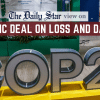
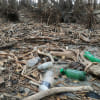
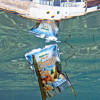
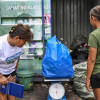



Comments